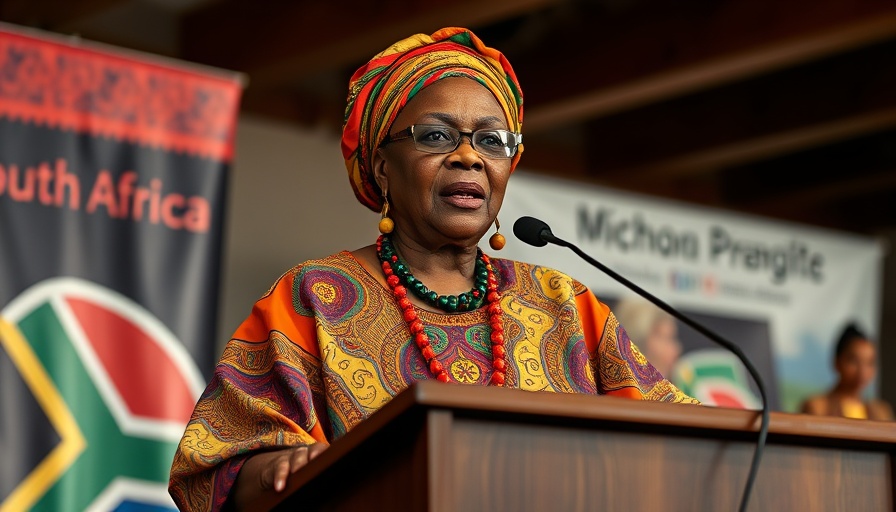
Uganda's Controversial Refugee Deal with the US
In an unprecedented development, Uganda has reached a contentious agreement with the United States to accept deported migrants who do not have criminal records. This arrangement has sparked widespread outrage among human rights activists, who argue that it raises serious ethical and legal questions.
In Uganda agrees to take deported migrants from US if they don't have criminal records, the discussion dives into the implications of this controversial agreement, exploring key insights that sparked deeper analysis on our end.
Nicolas Opio, a prominent human rights lawyer, has articulated concerns that this deportation deal could potentially violate both international and Ugandan law. According to him, it poses a risk of human trafficking as individuals are sent back without a clear legal status in Uganda, thereby jeopardizing their rights and human dignity.
Political Underpinnings of the Arrangement
The deal is seen by some as a political maneuver, aimed at re-establishing Uganda's diplomatic rapport with the United States after years of strained relations. The U.S., dealing with its own immigration issues, appears ready to offload migrants, while Uganda is looking to gain favor after previous administrations criticized its leadership.
As Opio suggests, what is framed as a bilateral agreement is intricately linked to broader geopolitical strategies, where the plight of human beings is sacrificed at the altar of state diplomacy. The paradigm illustrates the power dynamics that often characterize international relations, particularly for developing nations caught in the crossfire.
Call for Transparency and Public Consultation
In light of the controversy surrounding this agreement, Ugandan parliamentarians are urging greater transparency in the deal's conditions. They emphasize the necessity for public discourse regarding the details of such agreements, which they argue should be made available to Ugandan citizens who have a vested interest in the welfare of any new arrivals.
This demand for openness comes amidst complaints of bureaucratic opacity within Uganda's foreign affairs ministry, contrasting sharply with the U.S. federal administration known for its relatively transparent dealings. Stakeholders have called for a more inclusive decision-making process that allows Ugandans to have a say in policies enacted on their behalf.
Historical Context: Previous Deportations
This initiative is not the first time the U.S. has looked to Uganda for secondary resettlement. In July alone, the U.S. deported five men with criminal backgrounds to Eswatini and eight to South Sudan. Such practices underscore the fragile and often precarious position of migrants who are caught between the rigid immigration policies of wealthy nations and the inadequate systems of receiving countries.
The implications of these historical precedents serve as warning signs about the risks faced by deported individuals, many of whom may have difficulty reintegrating into society, given the lack of support structures in place.
Global Perspectives on Migration and Deportation
The unfolding scenario in Uganda is indicative of broader trends observed around the world where nations are increasingly resorting to deportations as a mechanism to deal with migration challenges. A study on global migration practices reveals that developing nations often find themselves in precarious agreements with more affluent countries, highlighting not only humanitarian concerns but also persistent inequalities that characterize international migration laws.
While some may argue that such deals offer a semblance of economic opportunity for the receiving nation, experts warn that they risk fostering environments where migrants find their rights diminished and their lives commodified.
Future Implications: A Critical Crossroads for Ugandan Policy
Looking ahead, the ramifications of this agreement could be far-reaching for Uganda. As the nation balances the prospect of improving its image in the international community against the moral imperative to uphold human rights, it is essential that policymakers take a forward-thinking approach.
Upholding principles of dignity and due process is critical not only for the integrity of the legal system but also for establishing a humane precedent for future migrant policies. If Uganda is to emerge as a beacon of progressive governance, it must prioritize transparency, accountability, and above all, compassion for those facing dislocation.
Conclusion: A Call for Ethical Governance
The implications of Uganda's recent deportation agreement with the U.S. cannot be overstated. Addressing human rights concerns while navigating complex political landscapes is a challenge that demands urgent action and ethical governance. The future of migrant rights hangs in the balance, and it is imperative for all stakeholders to advocate for a humane approach that prioritizes the well-being of individuals above all else.
If you find the complexities surrounding international migration and its implications on human rights compelling, we encourage you to engage in discussions around ethical governance and transparency in policy-making.
 Add Row
Add Row  Add
Add 




Write A Comment